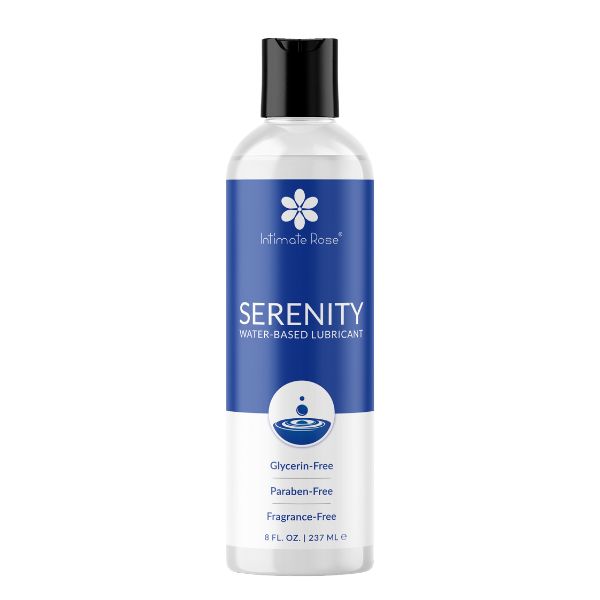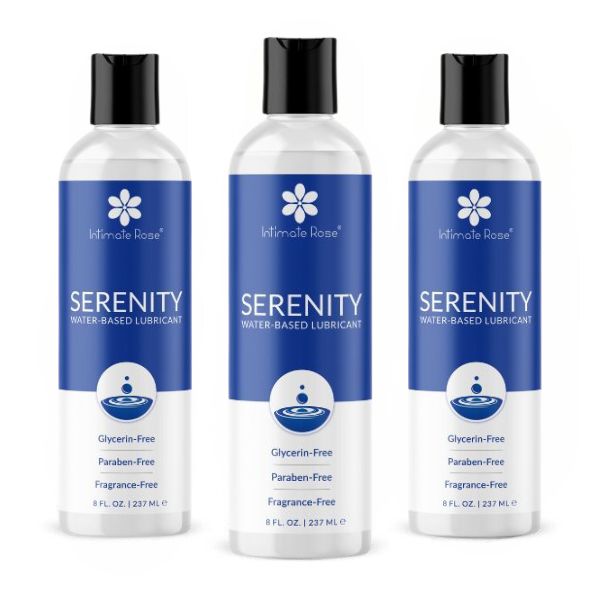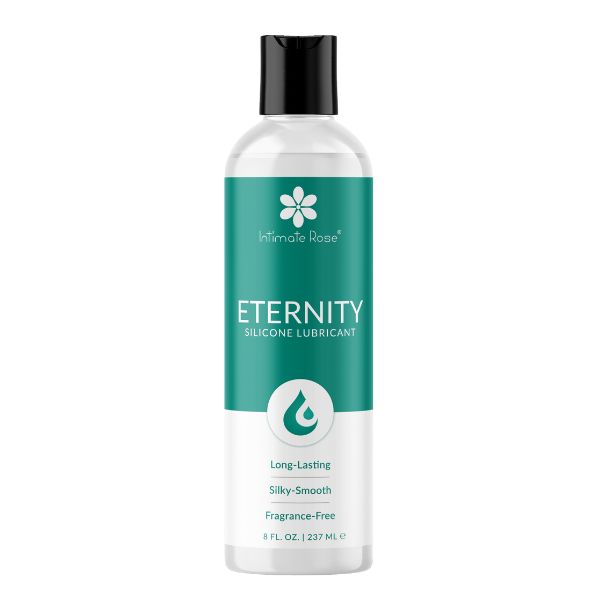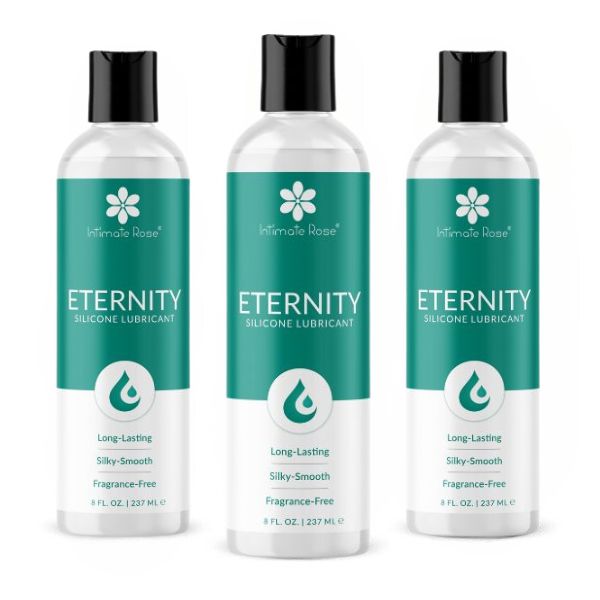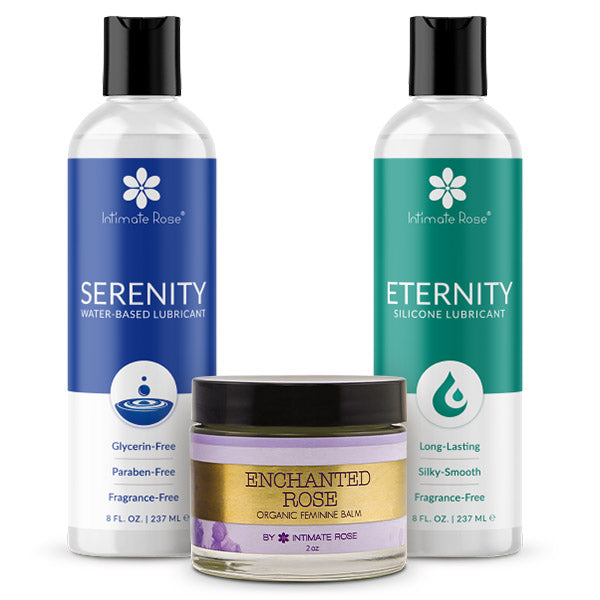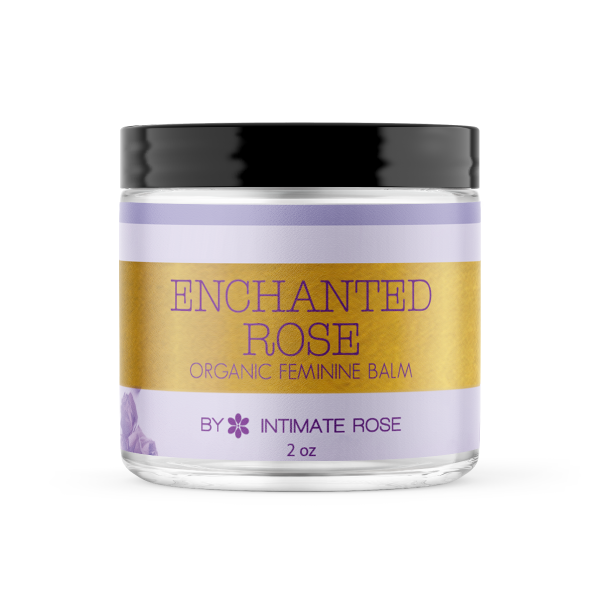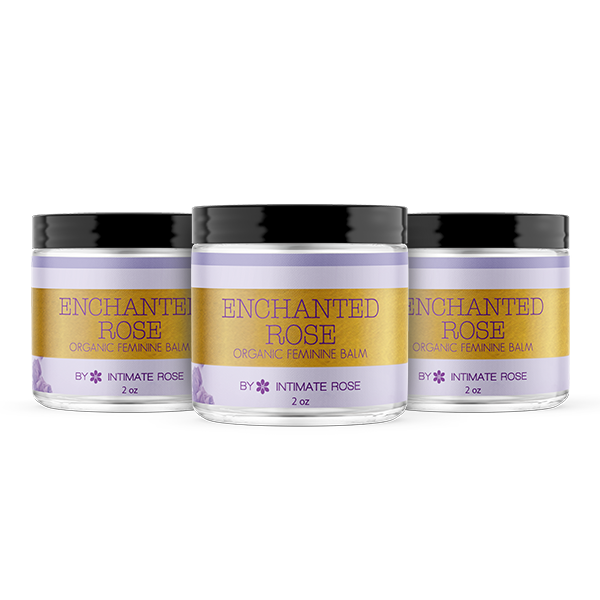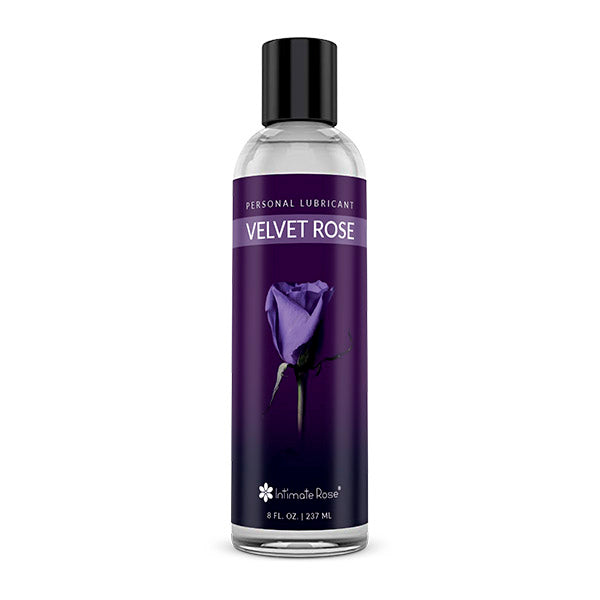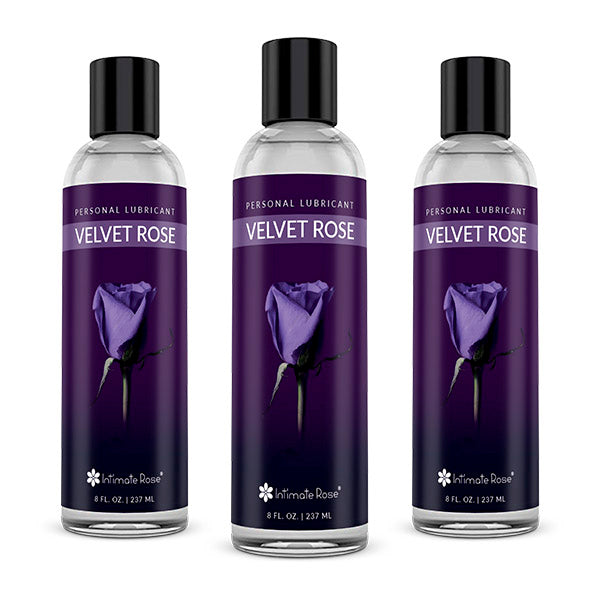Although most side effects of menopause can be linked to hormone changes, menopause symptoms are varied and often unique to each woman. Many midlife women may be familiar with hot flashes and sleep issues commonly caused by low estrogen, however, a lesser-known symptom of menopause is dry skin.
Join us as we explain why menopause can cause dry skin and the easy steps you can take to relieve it, including a powerful natural alternative to hormone therapy to replenish estrogen-deficient skin.
Dry Skin in Menopause: What Causes it?
When referring to dry skin in menopause, it’s important to understand this also incorporates the stages before and after menopause, known as perimenopause and postmenopause.
Put simply, dropping estrogen production is the primary cause of dry skin in menopause. In addition to maturing a teenager’s body during puberty, supporting the reproductive system, and maintaining heart and bone health, estrogen also plays an important role in skin health and hydration.
When it comes to the skin, estrogen encourages collagen and sebum production. Collagen helps keep the skin hydrated, plump, and wrinkle-free. Sebum is an oil that locks moisture into the skin protects it from sun damage, and prevents skin infections by deterring harmful bacteria on the skin’s surface.
Due to dropping estrogen levels during menopause, lowered collagen and sebum production often lead to dry, thin, flaky, or itchy skin. For many women, the dryness is initially noticed on the elbows, eyebrows, or t-zone, but if left untreated, the dryness will inevitably affect the entire body.
Long Term Effects of Dry Skin in Menopause
When dry skin on the elbows or t-zone occurs during perimenopause, it’s typically a sign from the body that low estrogen levels have affected the production of collagen and sebum. What’s important to understand is this change in your skin is not temporary – lowered estrogen, collagen, and sebum in menopause effectively means dry skin is permanent and will require hydration for the rest of a woman’s life.
When dry skin during perimenopause is left untreated, studies have shown that the dry itchy sensation worsens and spreads to other parts of the body, including the scalp, vaginal skin (atrophy), and finger and toenails. The lack of moisture in the skin also accelerates sun damage, wrinkles, dermatitis, and poor wound healing as women age.
Although dry skin is a permanent symptom of menopause, the good news it can be easily treated at home with some simple skincare steps.
6 Top Tips to Treat Dry Skin During Menopause
To improve dry, flaky, or itchy skin during perimenopause, menopause, or postmenopause, dermatologists and women’s healthcare experts recommend the following tips.
Omega-3s For Sebum
Sebum is an oil produced by the sebaceous glands to help keep the skin hydrated, infection-free, and protected from the sun’s rays. When sebum production lowers due to hormone changes in menopause, it can cause dry, flaky, and itchy skin. However, boosting the production of sebum is easily done through diet.
Essential fatty acids like omega-3s are commonly under-consumed, but vital for sebum production and skin hydration. Regularly eating eggs, flax seeds, salmon, sardines, and soy products will help improve sebum production and relieve dry skin in menopause. Alternatively, omega-3 supplements will also work.
Collagen Boost with Vitamin C and Sulfur
Collagen is a protein produced by the body and helps the skin stay elastic, plump, and wrinkle-free. When estrogen levels drop in perimenopause, collagen production typically drops too. However, you can improve your collagen production by eating foods rich in sulfur and vitamin C.
Citrus fruits, blackcurrants, broccoli, brussels sprouts, guava, kale, red peppers, and strawberries are foods high in vitamin C. Alternatively, a daily vitamin C supplement will provide the same benefits.
Sulfur intake can be improved by regularly eating foods such as; arugula, beans, broccoli, brussels sprouts, cauliflower, chickpeas, eggs, garlic, leeks, onions, and scallions. Bone broth is also a powerful collagen booster.
Hydrate & Moisturize
One of the best ways to hydrate your skin is from the inside by drinking 2.0 - 2.5 liters of water per day. During perimenopause, menopause, and postmenopause it’s also helpful to take short, warm showers instead of long hot baths or steaming hot showers. Hot water can strip the skin of naturally produced oils and dry the skin.
When seeking to keep estrogen-deficient skin during menopause well-hydrated, it also helps to gently exfoliate in the shower and apply moisturizer while the skin is still a little damp to maintain more moisture.
Gentle Skincare Products
Women are always surprised when a dermatologist explains how many skincare products are made with synthetic ingredients that strip the skin of natural oils and dry it out. To care for dry skin during menopause, consider using an unscented soap to wash the body or body wash products made from natural ingredients like coconut oil or shea butter.
If you suffer from dry facial skin, speak with a skincare professional about using natural products that lock in moisture like vitamin C, lactic acid, or hyaluronic acid.
Daily Sunscreen
In addition to skin cancers and moles, sun damage can contribute to dry skin and wrinkles. And even though it's now widely understood that sunscreen is vital throughout life, it’s even more important once perimenopause begins due to lowered collagen and sebum production.
Even on overcast, rainy, foggy, or snowy days, women will benefit from applying sunscreen with UVA and UVB protection to maintain skin hydration and elasticity.
Limit Alcohol and Smoking
Alcohol consumption and smoking are known to dry the skin and are therefore better avoided or minimalized during perimenopause to keep the skin elastic, hydrated, and healthy through into the postmenopausal years.
Optimize Overall Health
We’ve all heard the expression ‘you are what you eat’ when it comes to our overall health and what you put in your body is also reflected in your skin health.
Eating a well-balanced diet ensures a wide range of nutrients are available to keep the body and skin healthy. Whereas eating an unhealthy diet consisting of sugar, processed foods, and junk food can result in the body, and skin, being under-nourished, stressed, and inflamed.
Exercise is also great for your skin. As well as improving oxygen circulation, fitness, and cardiovascular health, regular aerobic exercise enhances collagen production thereby keeping the skin hydrated and elastic.
What If Dry Itchy Skin Persists in Menopause?
Even after following the skincare tips mentioned above to treat dry skin during perimenopause, for some, it can still worsen as the transition into menopause progresses and estrogen continues to decline. In these cases, traditional healthcare providers often prescribe hormone therapy (HT) in the form of topical estrogen creams or oral medication.
Although reintroducing estrogen via HT can help relieve various menopause symptoms, including dry skin, it is also known to increase the risk of breast cancer, uterine cancer, blood clots, and strokes.
To avoid these risks, women suffering from menopause symptoms are encouraged to consider a natural, and much safer, option called phytoestrogens instead.
Hormonal and Non Hormonal Menopause Relief
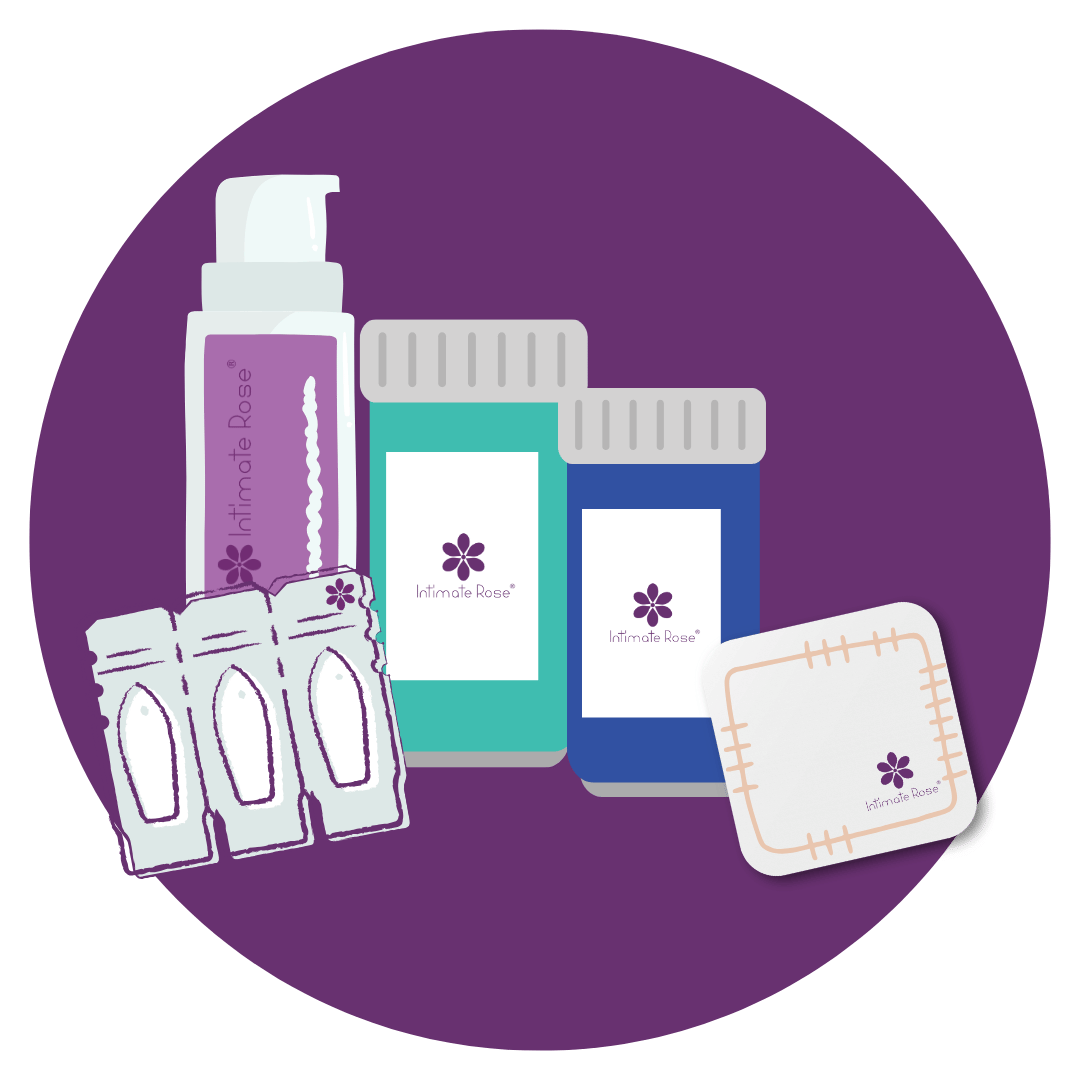
Phytoestrogens
In contrast to lab-produced HT containing synthetic hormones, phytoestrogens come from plants and instigate no adverse side effects when taken to relieve menopause symptoms such as; hot flashes and mood swings. Concerning the skin, phytoestrogens have been acknowledged for boosting collagen and delaying skin aging.
Essentially, phytoestrogens are estrogen receptor modulators (SERMs), which naturally bind to estrogen receptors and imitate the effects of estrogen in the body. So instead of re-introducing estrogen when it is already naturally declining, phytoestrogens mimic the effects of estrogen and the body responds as if estrogen is present.
Women with dry skin during perimenopause or menopause experience significant improvements in skin hydration and elasticity from a regular intake of phytoestrogens. This is due to its ability to rebalance fluctuating hormones and replenish estrogen-deficient skin by boosting collagen and sebum production.
Interestingly, phytoestrogens have estrogenic and antiestrogenic properties – this means they can adapt and rebalance several variations of hormone imbalances. For example, women who suffer from acne during menopause tend to experience increased sebum production and oily skin due to high androgen levels when estrogen drops faster than testosterone. In these cases, phytoestrogens adapt and lower sebum production instead of increasing it when the skin is dry.
Where Can You Find Phytoestrogens?
Phytoestrogens are derived from certain trees, plants, fruits, and vegetables. However, even though they are naturally found in apples, pears, plums, cabbage, sprouts, spinach, and grains, female health experts recommend daily supplements to ensure adequate and steady levels of phytoestrogens are ingested for best results.
For example, our Vitex Chasteberry supplement is made from the Chasteberry tree. This is a plant native to Asia and some Mediterranean countries, which is also known as Vitex agnus-castus. Considered one of the most potent and effective phytoestrogen supplements in today’s market, Intimate Rose Vitex (Chasteberry) Supplements are pure vegan, contain 1,000 mg of pure Vitex, and are organically produced in an FDA-approved facility.
Do Phytoestrogens Relieve Other Menopause Symptoms?
Yes, phytoestrogens are known to relieve several menopause symptoms without any increased risks of breast cancer, uterine cancer, strokes, or blood clots like lab-made hormone therapy.
According to customer feedback, a daily Vitex (Chasteberry) Supplement from Intimate Rose has improved menopause mood swings, insomnia, low libido, dry skin, breast tenderness, muscle and joint pains, vaginal dryness, acne, and heart palpitations, amongst others.
Another benefit of phytoestrogens like Vitex is that they also support cardiovascular health and maintain a healthy bone density as natural estrogen levels fall in menopause.
Can Dry Skin in Menopause Be a Sign of Something More Serious?
Sometimes, yes. Hormone fluctuations during menopause are only one cause of dry skin that can affect women mid-life. Fungal skin infections can cause dry skin, as can hypothyroidism, a lack of nutrition, and vitamin deficiencies.
If the skincare tips and daily phytoestrogen supplements mentioned above don’t improve dry skin during menopause, schedule a consultation with your healthcare provider or a dermatologist for further analysis.

Get your personalized HRT plan!

Get your personalized HRT plan!
Conclusion
Lowered estrogen levels and fluctuating hormones during perimenopause and menopause can instigate a variety of changes, including various skin issues. Lowered estrogen levels are known to reduce collagen and sebum production leading to dry, flaky, and often itchy skin later in life.
Although a lack of skin moisture is natural during menopause, it is also permanent and requires a hydrating skincare routine throughout the menopausal years. Phytoestrogens are an effective, safe, and affordable alternative to avoid the risks of hormone therapy, improve dry skin, and relieve other bothersome menopause symptoms.
References
National Library of Medicine – Estrogen and Skin: Overview - https://pubmed.ncbi.nlm.nih.gov/11705091/
Web MD – Collagen and Your Body: What to Know - https://www.webmd.com/skin-problems-and-treatments/ss/slideshow-collagen-and-your-body
Health – What is Sebum? - https://www.health.com/sebum-7967155
Science Direct - Estrogen-deficient skin: The role of topical therapy - https://www.sciencedirect.com/science/article/pii/S2352647519300012
American Academy of Dermatology – Caring For Your Skin in Menopause - https://www.aad.org/public/everyday-care/skin-care-secrets/anti-aging/skin-care-during-menopause
National Library of Medicine - Recent advances in the anti‐aging effects of phytoestrogens on collagen, water content, and oxidative stress - https://www.ncbi.nlm.nih.gov/pmc/articles/PMC7078862/
National Library of Medicine - Evaluation of estrogenic activity of plant extracts for the potential treatment of menopausal symptoms - https://pubmed.ncbi.nlm.nih.gov/11368622/
National Library of Medicine - Phytoestrogens and Their Health Effects - https://www.ncbi.nlm.nih.gov/pmc/articles/PMC6390141/

Get your personalized HRT plan!




